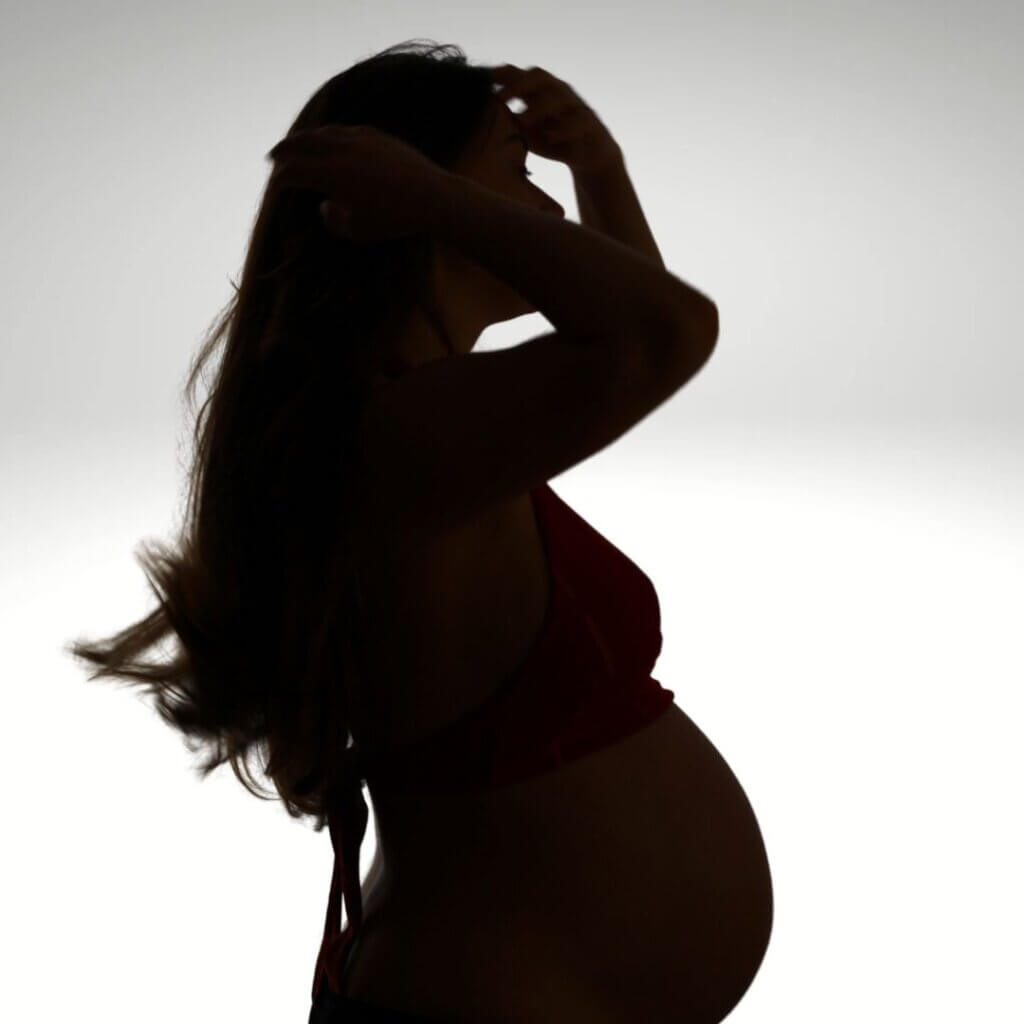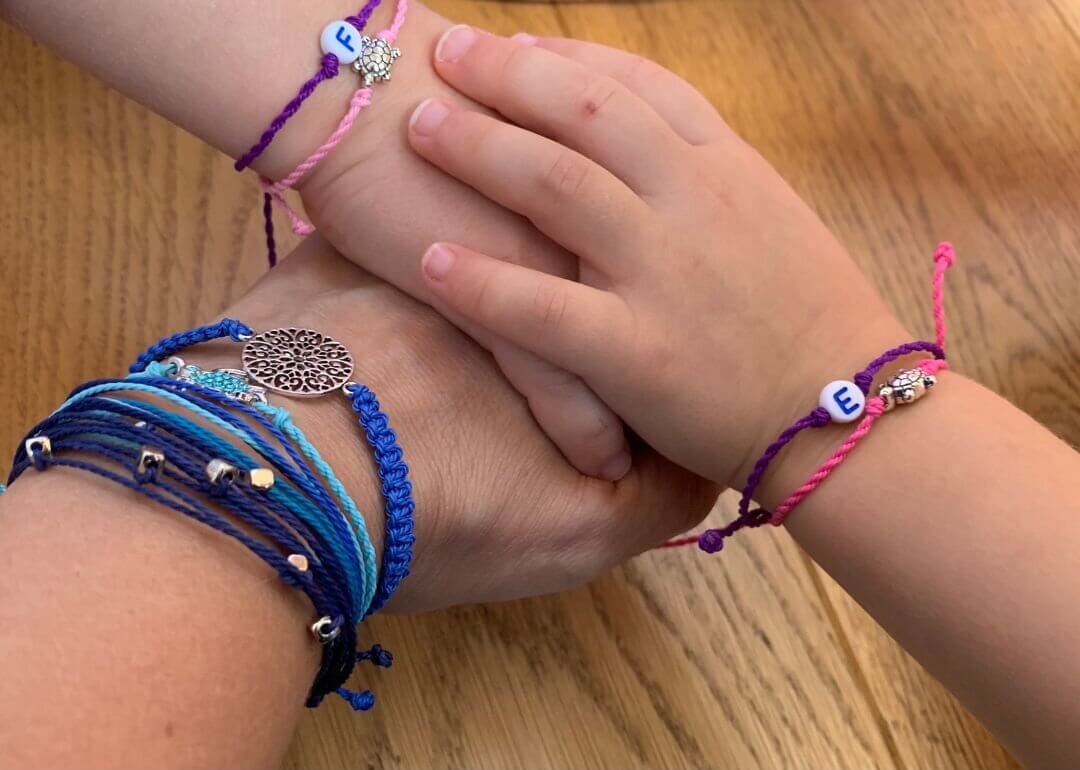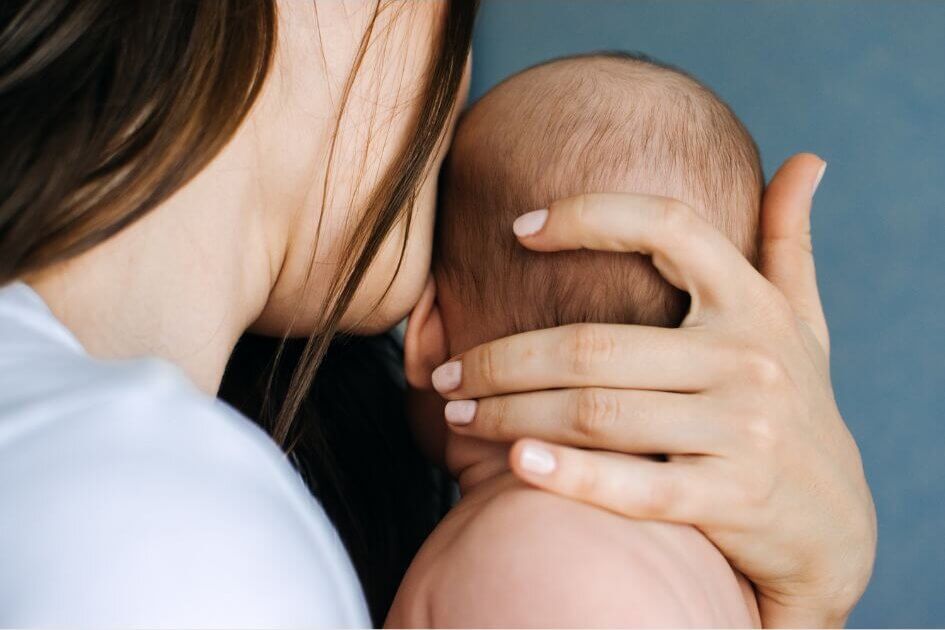I didn’t expect guilt to walk hand in hand with motherhood, but it did. In fact, it showed up before I even became a mother.
It began when I was still pregnant with my first daughter. I was petrified of vaginal birth. Not just nervous. I was paralysed. I remember one day coming home after yet another appointment with counsellors and psychologists, turning to my husband and saying: “I have no idea how this baby will be born, because if it’s not via C-section, it certainly won’t be vaginally either”. I cried for hours. Not because I didn’t want to give birth, but because I felt completely unseen. I understood the benefits of vaginal birth, I really did. But all anyone ever seemed to focus on was convincing me, not supporting me and they didn’t help me work through my fears either. I now realise those appointments weren’t about understanding what I was feeling, they were focused on persuading me instead.
Even though we were told we had a choice, back then (over 10 years ago in the UK), it didn’t feel like one. There was shame. Disapproval. I couldn’t even say it aloud during my antenatal classes “I want a planned C-section”. I felt so embarrassed about my fears and worries towards vaginal birth.
It wasn’t until three weeks before my daughter was born that the obstetrician finally agreed. I was relieved, yes. But that shame stayed with me. And maybe that was the start of something deeper, that feeling of falling short of the perfect mother ideal.
And even now, as I write this, I feel the need to justify that I’m not questioning the system or trying to argue about types of birth. I’m simply sharing my experience and noting the guilt that came with it.

When breastfeeding doesn’t go to plan
When my daughter was born, I stepped into that world everyone talks about, the so-called magical world of motherhood, but it wasn’t all magic. It came with its bumps, highs and lows. I couldn’t breastfeed. A surgery I’d had at 18 had damaged my milk ducts, something I only came to understand later. But at the time, all I could feel was failure.
I had a fantasy, like many do. That I’d breastfeed my baby just like my mother did with me. That it would be natural. Intuitive. But it wasn’t. Despite midwives reassuring me that things looked fine, my daughter lost nearly 14% of her birth weight in her first ten days of life. We rushed to hospital and I’ll never forget the paediatrician’s sharp voice, the fear, the feeling that I’d failed my daughter in the most basic way.
Then came a comment from a breastfeeding consultant: “Maybe it’s because she was born via C-section. Maybe you didn’t bond properly”. Guilt on top of guilt. It wasn’t until a few days later that a kind soul finally explained to me that the surgery, not my C-section, was the cause of my breastfeeding struggles. But by then, the guilt had already made a home in me.
Even now, when my daughter is struggling at school or gets sick, part of me wonders: is it because I couldn’t breastfeed her properly?
Between two worlds: motherhood and career
But that was just the beginning. Motherhood guilt comes in many facets. I live in between two worlds, always trying to balance my longing for a fulfilling career with the desire to be a present, emotionally available mother.
I want both. And most days, I feel like I’m failing at both.
Sometimes I wish I was one or the other. Either a full-time career woman, confidently outsourcing childcare and thriving in the workplace, or a fully committed stay-at-home mum, surrendering to that identity wholeheartedly. But I’m neither. I’m both. And in between, guilt.
Once, one of my cousins told me how after just three months of maternity leave, she couldn’t wait to return to work. She found being at home full-time with her son overwhelming. I was jealous, because she knew. She knew what worked for her and she felt no shame about it. Why should she? Her children are thriving. She is thriving. She owned her truth, something I’m still trying to figure out. It helps that childcare in Brazil is relatively much more affordable than in the UK, which makes certain choices easier for families there.
Another layer of guilt comes from raising my children so far from my family in Brazil. They’re not growing up surrounded by cousins, grandparents, aunts and uncles like I did. They are not playing in the street until sunset. No spontaneous Sunday lunches with a house full of laughter. We say it takes a village to raise a child. But it also takes a village to support a mother. And in this part of the world, my village often feels far away. There’s a sense of loss in that too. One I carry alongside the guilt.
Letting go of mum guilt: Is it possible?
I don’t know if motherhood guilt ever truly leaves us. But I do know it helps to speak it aloud. It’s important to acknowledge that guilt isn’t a measure of love. It’s often a reflection of the impossible standards we set for ourselves.
We are mothers. But we are also women, individuals with dreams, past experiences and a future ahead of us. So if you, like me, are living in between two worlds: wanting to be a good mother but also have a career; longing for space and time but also to be present at our children’s activities; it’s worth remembering that we don’t need to have all the answers. Perhaps just acknowledging the push and pull is a start. And maybe, just maybe, it’s time we started mothering ourselves with the same love we offer our children. I’m starting to accept that I’m not a superwoman, and that I was never meant to be.
And as I was finishing uploading this post to my blog, my little one came over for our traditional goodnight. She read a small part of it, but enough to understand what it was about. Then she gave me a big hug and said, “Mummy, you’re not failing me.”
If you’d like to explore this topic further, check out my conversation with coach and author Belinda Jane Batt MSc about Motherhood guilt: what it is, why we feel it, and how we can begin to navigate it.



